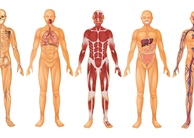Featured Opinion:Defeating Apathy and Alienation in Scotland: True Victors of the Scottish Referendum
By
2016, Vol. 8 No. 02 | pg. 1/1 At 7am in the morning after the Referendum on Scottish Independence, a triumphant David Cameron stood on the steps of number 10 Downing Street and announced to the world that the Scottish people had, with 55% of the electorate voting No, comprehensively rejected the idea of becoming an independent nation. This notion of finality has become the prevailing media narrative: the people have spoken, democracy has triumphed, independence has been rejected and the democratic debate concerning the future of the United Kingdom has reached its conclusion. This is, however, a highly reductive interpretation of what happened in Scotland in the fall of 2014, an interpretation that seeks to gloss over the emergence of important social undercurrents: the blossoming of a grass-roots social movement comprised of previously disengaged and apathetic voters; the re-engagement of a working and under class (whose apathy is a requirement of the prevailing neoliberal attitude); and indeed, a movement which still poses an existential threat to the United Kingdom. 
David Cameron and Alex Salmond face off over 2014 Scottish Referendum. Image: Surian Soosay CC-2 Under closer scrutiny the underlying causes of this resurgence in Scottish nationalism are applicable to most developed societies, who, brutalised by austerity and fractured by inequalities, are beginning to reject a dysfunctional neoliberal economic doctrine that has been imposed on western society for the last three decades. Alienation is by no means unique to Scotland, but is rather a sentiment shared by ordinary people throughout the world. “Alienation” was the chosen subject of prominent Scottish Communist Jimmy Reid in his inaugural address as Rector of the University of Glasgow. In his prophetic speech he identifiesd alienation as a growing social problem in the United Kingdom, and, so eloquently describes the reasons why 42 years later, the people of Scotland began to agitate for independence.
Alienation is by no means unique to Scotland, but is rather a sentiment shared by ordinary people throughout the world. Nationalism merely provided an outlet for the Scottish people to vent their fury at how their society has in the last 30 years been aggressively re-organised without their consent. Capitalising on such alienation, the pro-independence Yes campaign offered hope: a vision of a new inclusive society free from the bind of blind economic forces where people were directly in control of their own destinies. Independence in 2014, just like the Union of Parliaments in 1707 was more about political economy than nationalism: the latest northern rebellion was against a dominant neoliberal culture which without a mandate, has for the last three decades allowed the free-market to systematically rearrange and brutalise Scottish Society. The seeds of this rebellion were initially sewn during the 1980s when the incumbent Conservative Government began to impose its newly embraced neoliberal ideology in the UK, creating a legacy of mass unemployment and social upheaval still experienced today. These events were particularly poignant in Scotland, demonstrating to the nation how they were the victims of a democratic deficit: where although the unpopular Conservative Party were a minority in Scotland, they still possessed a mandate from Westminster to impose a new devastating political economic doctrine which few north of the border subscribed to. In Scotland the Labour Party was viewed as the last bastion of socialism, a party who fought for social justice and would defend society against the onslaught of the free-market. A seismic change occurred within the party in 1994 when clause IV was removed from the party’s constitution. Known as “the third way,” Labour embraced neoliberalism and dragged the party into the murky central ground of British politics. Such a move was embraced by all but a minority within the party, and initially, proved to be very successful. In 1997 Labour won a landslide victory, and immediately set in motion plans to address this democratic deficit in Scotland. The Scottish Parliament opened in 1999 and was anointed with many devolved powers including control over health, education and the environment. Ultimately, it was designed to offer more direct governance in Scotland and ensure Westminster could never again repeat the crimes of the 1980s. The real story in Scotland is a victory over apathy and alienation.
The Parliament has been an unqualified success, re-engaging the previously disenfranchised Scottish people in the decision-making process. Ironically, instead of resolving the long term constitutional problem posed by the democratic deficit and suppressing nationalism, the Parliament inflamed the issue of independence. It has done this through protecting Scotland from the destructive neoliberal policies imposed on the United Kingdom, demonstrating to the Scottish people a clear ideological schism north and south of the border. After the initial success of New Labour in Scotland their newly embraced neoliberal ontology began to open fresh wounds in Scottish society, and, coupled with their invasions of Iraq and Afghanistan, the Scottish people became increasingly disillusioned with their native party. In 2007 the Scottish National Party assumed control of the Scottish Parliament, and, in 2011 won with such a landslide they were able to form the parliament’s first ever majority government. Such a rapid political re-alignment can be explained by the British political class’ unconditional acceptance of the Washington Consensus: with New Labour’s adoption of the third way and the incumbent Conservative’s free-market fundamentalism, the Scottish electorate’s left leaning political outlook was once again not represented by Westminster. The SNP, under the guidance of their astute leader Alex Salmond, moved to the left of the political spectrum, filling the void left by the Labour Party and began protecting Scottish society from the wrecking ball of the free-market. The Nationalists are now the only political force in Scottish politics. As the Westminster elites take advantage of the financial crisis to embark on an attack on the welfare state beyond even Thatcher’s moral compass: accentuating poverty, unemployment, inequalities, retarding social mobility and condemning future generations to low paid menial work, the idea of seceding from such a brutal society gained in popularity. In the powers which have been devolved north of the border the Scottish Government has been shielding its population from this violent neoliberal assault. As the onslaught of the free-market intensified, the defence of society by the Scottish Government became more salient, and the concept of a completely separate state dramatically increased in popularity. This defiance shown by the SNP, coupled with the idea of taking full control over the nation’s destiny, seemed to liberate the Scottish electorate from the neoliberalism’s greatest ally: alienation. It offered hope. In the summer of 2014 the Scottish public became engaged in a rational critical debate, which somewhat ironically, has been absent in contemporary developed democracies. For the first time in a generation the public were re-engaged in politics: they felt once more part of the decision making process, in control of their destinies and ready to stand up to these blind economic forces which have for the last three decades taken over and controlled every aspect of their lives. Such an engaged and inclusive public sphere, which is cited by liberal democratic theorists as essential to a functioning democracy, shook the political establishment to the core. As the referendum approached polling gradually narrowed, and, supported by a demographic unshackled by their alienation, the Yes camp took the lead, an independent Scotland seemed for the first time to becoming a reality. Apathy and alienation: essential to the smooth functioning of neoliberal democracies had been defeated. A voice not heard in decades began to question political dogmas which unchallenged for decades, had achieved global conformity and a taken for granted status in political discourse. Panic. Financial markets began to tremble, the value of the pound dropped and the Westminster war machine was fully mobilised to suffocate such an expressive public sphere. Westminster embarked on a campaign of fear and blackmail to suppress this protest against these blind economic forces that dictate our existence. From the Whitehouse to Buckingham Palace, the City of London to Wall Street, came grave warnings of the implications of independence. The Scottish people were threatened with losing their currency, pensions, banking institutions, security and membership of the E.U. Numerous statesmen, corporations and the entire British political class conspired with the media, all the benefactors of a neoliberal status quo, to batter the Scottish public sphere, warning of the apocalyptic consequences of an independent Scottish state. As highlighted by Guardian columnist George Monbiot, “How the Media shafted the people of Scotland,” with the exception of the Sunday Herald, no media outlet, regional or national, supported independence. Such intensive media support for the Union again defies basic democratic principles which state the media must function as a platform for rational debate offering a pluralistic voice to a range of political opinions. The Coup de Gras was performed two days before the Referendum. The leaders of the three major Westminster parties published through their loyal press outlets a “vow,” promising to grant the Scottish Parliament “extensive new powers,” a pledge which was immediately spun in the press as an offer of federalism. Such interference in a General Election, or in any other liberal democracy, is not only deemed undemocratic but illegal, as policy announcements close to polling can deceive the electorate, giving the protagonist an unfair advantage and distort the outcome of the vote. Given such an assault on the democratic process, the result: Scotland rejecting independence with only 55% of the vote; seems contrary to the prevailing media narrative, far from conclusive. A different story is emerging in Scotland. It is one political of re-engagement. Re-enfranchisement, of an energised electorate, who, during the summer of 2014 became liberated from the bondage of alienation and challenged a political doctrine which feeds of their very apathy. 85% of the electorate voted. Such a turn-out reflects an unprecedented level of political participation unseen in contemporary democracies. A level of political engagement which threatens not only the existence of a British state but a global political establishment who have embraced neoliberalism as the only way: offering no alternatives as to how our lives should be governed. This ideology breeds off our alienation, drip feeding a political class who around the world will have observed with concern the levels of political engagement in Scotland, hoping such lack of apathy is not contagious. Although ultimately defeated by the ballot, the real story in Scotland is a victory over apathy and alienation. In the few months since the result the Scottish electorate has remained enthused and energised. Driven by a sense of injustice, this re-energised electorate is waiting for those desperate eleventh hour pledges to be fulfilled in their entirety. Awoken from their alienation the nation has become more politically active: membership of the SNP has trebled in size to over 75,000, overtaking the Liberal Democrats (44,000), to become the third biggest party in the UK. Analysts are now predicting the complete destruction of the Labour party in Scotland at next year’s UK General Election. The powerful grass-roots online campaign has not disappeared. Incensed by this growing feeling they have been cheated by the Westminster establishment and their neoliberal sponsors, this mobilised electorate has not slipped back into its commercially induced coma. The Referendum has reconciled little. In persuading a small majority of the electorate to vote No through threats, blackmail and unfulfilled promises, Scotland holds its breath to see what extensive new powers they will receive, if Britain will leave the E.U and just how much more damage the free-market can inflict on its social fabric. The root causes of this Referendum: Alienation, the feeling of despair and hopelessness created by unrestricted free market economics which have reorganised, and now control every aspect of our lives, has not been resolved. In 2014 the people of Scotland rebelled against this alienation, awakened from their apathy a mass of previously disenfranchised voters challenged a political elite and neoliberal ideology which thrives off the despondency it creates. This victory, over alienation, has the potential to not only free the Scottish people from the bind of Westminster, but, could have far reaching implications for democratic societies all over the world suffering from the same affliction. Suggested Reading from Inquiries Journal
Inquiries Journal provides undergraduate and graduate students around the world a platform for the wide dissemination of academic work over a range of core disciplines. Representing the work of students from hundreds of institutions around the globe, Inquiries Journal's large database of academic articles is completely free. Learn more | Blog | Submit Latest in Opinion |
















